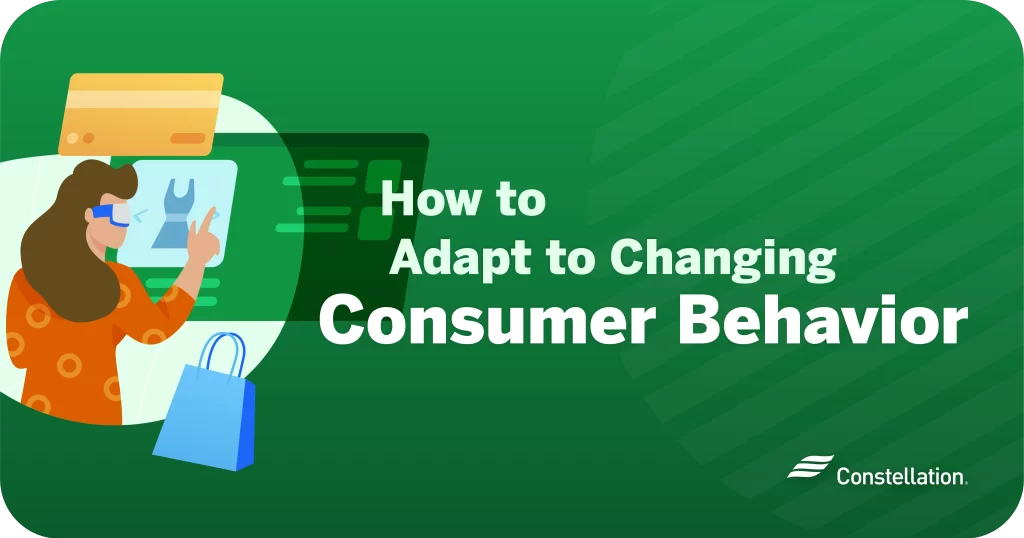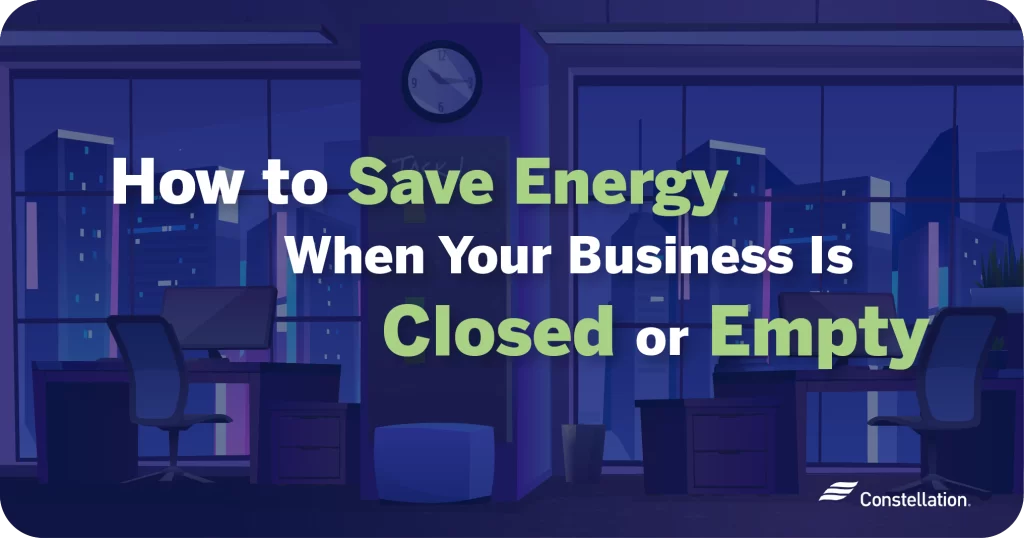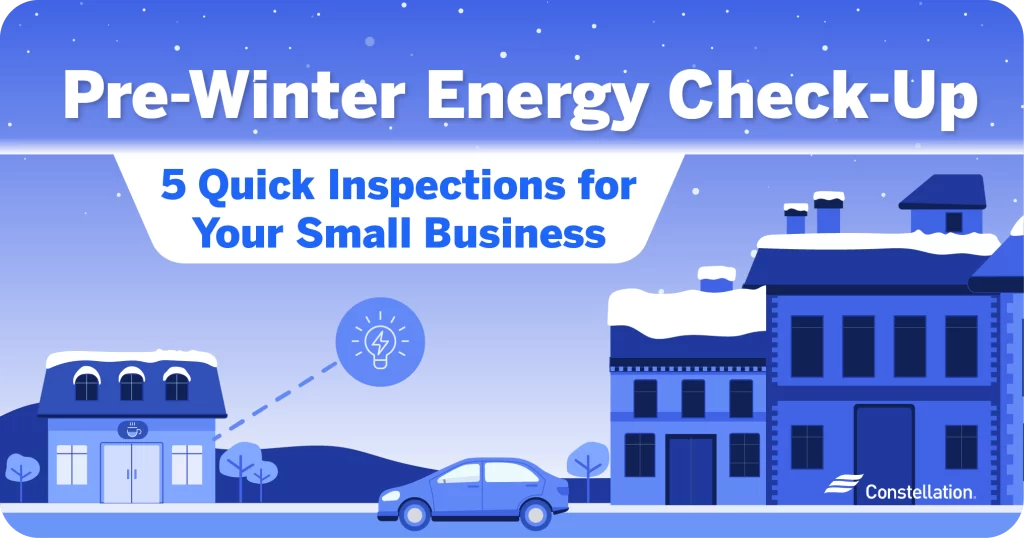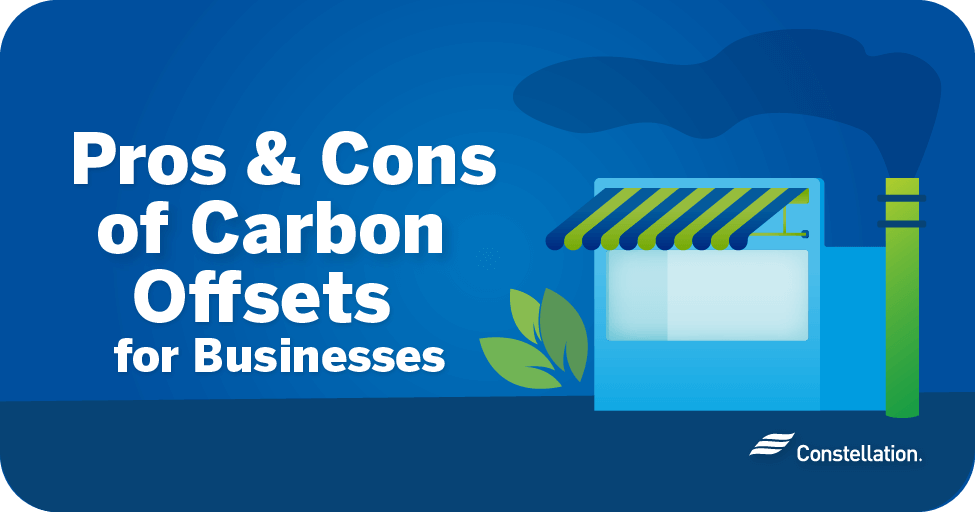
- Category:
Small Business Energy Savings -
Last updated:
October 12, 2022
Pros and Cons of Carbon Offsets for Businesses
Understanding carbon offsetting pros and cons will help you make the right decision for your company and is an important move toward achieving your environmental impact goals. Reducing your business’s carbon footprint is a worthy endeavor. Buying carbon offsets is one way you can do your part.
- What is carbon offsetting and how does it affect your business?
- Pros of carbons offsets for small businesses
- Cons of carbons offsets for small businesses
- What’s the most cost-effective way to purchase carbon offsets?
- Take steps toward sustainability with Constellation
What is carbon offsetting and how does it affect your business?
If, despite all you can reasonably do, your business still emits greenhouse gasses, you can turn to carbon offsetting for small businesses as part of your small business sustainability plan.
What is carbon offsetting? Diverse businesses and organizations are involved in activities that benefit the planet. These can include reforestation, certain agricultural activities, new ways to handle waste management and building various types of renewable energy sources. Some of these activities reduce the amount of carbon emitted and some remove it from the air.
You can help fund these activities by purchasing a carbon offset. Carbon-reducing and carbon-preventing businesses sell these carbon offsets on various exchanges to make the transaction simple. You may be still emitting carbon, but the carbon offsets you buy can help fund a cover crop of clover that absorbs as much carbon as you produce.
With carbon offsets explained, let’s look at carbon offsetting pros and cons as your business looks for ways to reduce your carbon footprint.
Pros of carbon offsets for small businesses
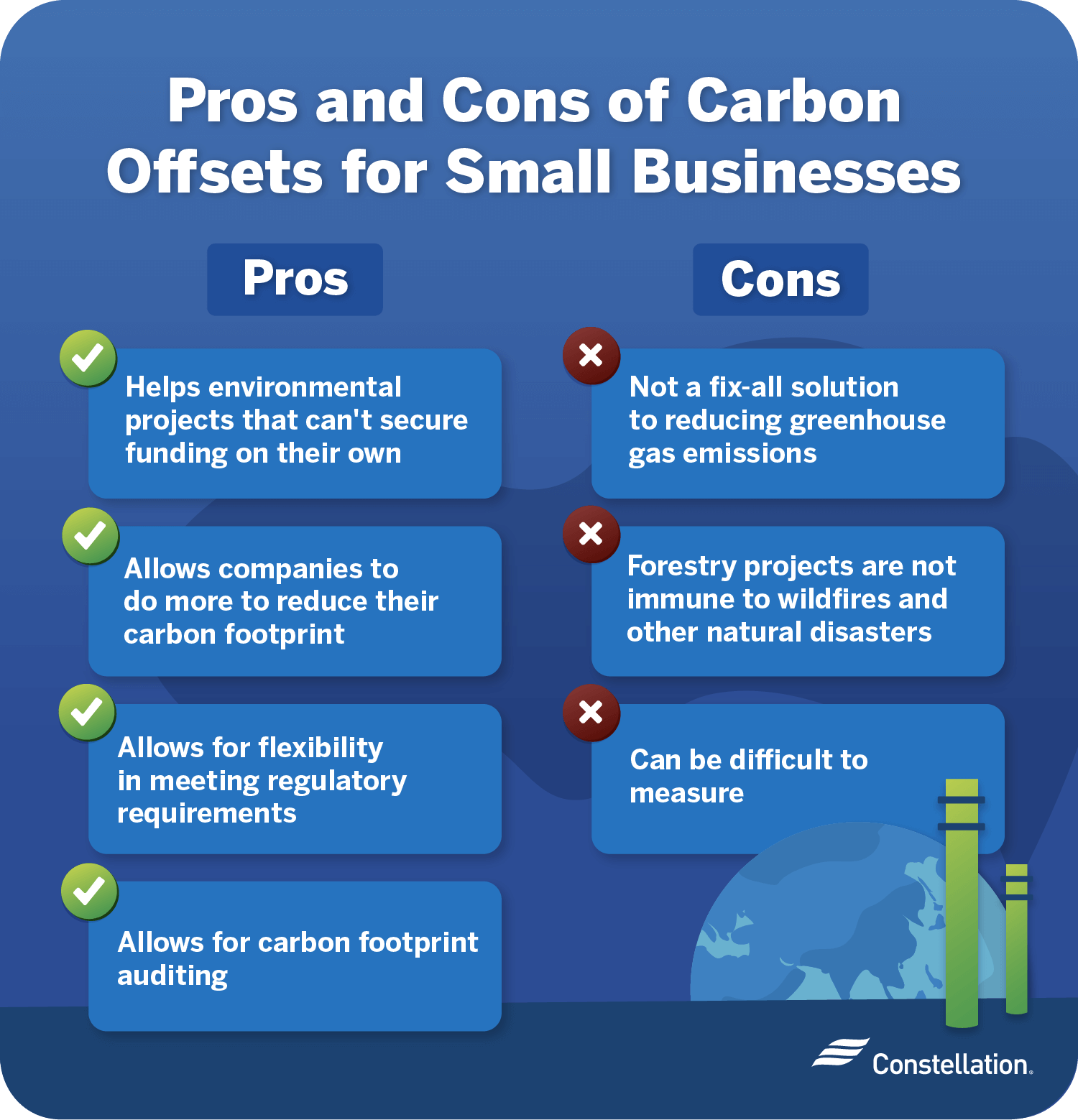
When thinking of ways to achieve small business sustainability goals, consider the following advantages of carbon offsetting for businesses.
1. Helps environmental projects that can’t secure funding on their own
Funding environmental projects can be a challenge. Large projects require significant capital. Small ones may struggle to get the attention of investors. Unusual, yet promising midsize projects cannot always effectively compete against conventional projects when it comes to raising money. One of the biggest advantages of carbon offsetting is that it creates a market that connects these projects and businesses with the money to fund them.
2. Allows companies to do more to reduce their carbon footprint
Carbon offsetting for small businesses is an option for companies that still cannot fully decarbonize their operations. Instead of doing nothing in frustration, your purchase of carbon offsets balances your emissions against reductions.
3. Allows for flexibility in meeting regulatory requirements
Flexibility is a key feature of many successful policy initiatives. Allowing companies to use offsets may help to lower compliance costs while ensuring that regulatory aims are still met.
4. Allows for carbon footprint auditing
Making pledges and talking about your good intentions when it comes to environmental stewardship is not enough. Your customers and the public want documentation. That is where carbon footprint auditing comes in. Firms that cater to small businesses can assess your operations and measure your carbon footprint. Buying carbon offsets makes documenting your reduction both easy and transparent.
Cons of carbon offsets for small businesses
While the advantages are obvious, you will encounter some disadvantages of carbon offsetting.
1. Not a fix-all solution to reducing greenhouse gas emissions
Carbon offsets are a short term way for your business to reduce its carbon footprint, but they don’t relieve you of the responsibility of continuing to transform your operations to minimize emissions. While they are a helpful tool in the quest to reduce greenhouse gas emissions, eventually every company will need to directly contribute.
2. Forestry projects are not immune to wildfires and other natural disasters
Even sound forestry practices are not sufficient to prevent fires, drought, and disease. Offsets from forests that have been destroyed must be cancelled and backfilled with offsets from other sources.
3. Can be difficult to measure
Another disadvantage of carbon offsetting is that measuring carbon offsets can be challenging. This is because of the wide variety of projects available and multiple metrics and methodologies. To improve transparency, standards and credibility, several non-profit, third-party organizations certify the value of carbon offsets.
What’s the most cost-effective way to purchase carbon offsets?
If after considering carbon offsetting pros and cons you decide they make sense for your business, you have options for contributing to environmental sustainability. When it comes to how to purchase carbon offsets for your business, the easiest way is to buy on an exchange like the Carbonfund.org Foundation or the AirCarbon Exchange.
You can also buy carbon offsets directly from energy suppliers like Constellation. Our carbon offsets come from reputable projects that have been verified through independent registries and support local communities across the United States.
Take steps toward sustainability with Constellation
Carbon offsetting for small businesses is a way for you to make a significant impact on reducing carbon emissions.
Constellation enables our customers through providing multiple options. In addition to carbon offsets, you can buy renewable energy certificates and emission-free energy certificates. Our natural gas sustainability program is another way to enhance the environmental sustainability of your company.
As leaders in moving to cleaner, more sustainable energy, we offer you our expertise as you join us in our collective responsibility for environmental stewardship.
